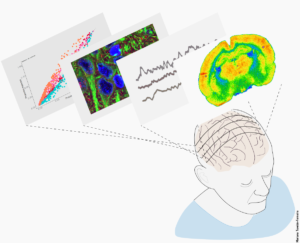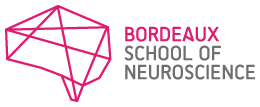Due to the COVID-19 crisis, this course has been rescheduled (initially planned on September 2020)
The normal aging process is associated with reduced performance on cognitive tasks that require one to quickly process or transform information to make a decision, including measures of speed of processing, executive cognitive function, working and relational memories. Structural and functional alterations in the brain correlate with these age-related cognitive changes, such as loss of synapses, and dysfunction of neuronal networks. It is crucial to develop new approaches that consider the whole neuroanatomical, endocrine, immunological, vascular and cellular changes impacting on cognition.
This 3-week course will cover the fundamentals of cognitive aging -including inter-individual differences, cognitive and brain reserve and risk factors- and highlight the newest functional imaging methods to study human brain function. The Faculty will share the state-of-the-art molecular, optical, computational, electrophysiological, behavioural and epidemiological approaches available for studying the aging brain in diverse model systems. The Students will learn the potential and limitations of these methods, through practical experience in a combination of lectures addressing aging in both humans and animal models and hands-on-projects. They will acquire sufficient practical experience to model, design and interpret experiments and brainstorm on novel technologies and hypotheses to explore the aging of the brain using more integrative and creative approaches.
Course director & co-directors
- Luisa Lopes (Instituto de Medicina Molecular Lisboa, Portugal)
- Cheryl Grady (The Rotman Research Institute, Canada)
- Nora Abrous (Bordeaux Neurocampus, France)
September 20 – 2:00pm
Luisa Lopes (iMM Lisboa, Portugal)
Towards assessing human synaptic aging – new models
September 21 – 9:00am (remotely)
Cheryl Grady (University of Toronto, Canada)
Using neuroimaging to examine between-person and within-person variability in cognition across the adult lifespan
September 21 – 11:00am
Nora Abrous (Bordeaux Neurocampus, France)
Role of hippocampus neurogensis incognitive aging
September 22 – 9:00am
Carol Barnes (University of Arizona, USA)
Region-selective hippocampal contributions to altered cognition in aging
September 22 – 11:00am (remotely)
Maria Llorens-Martin (Universidad Autonoma Madrid, Spain)
Human adult hippocampal neurogenesis during physiological and pathological aging
September 24 – 9:00am
Laure Rondi-Reig (Sorbonne University, France)
Studying memory systems using navigation behavior
September 24 – 11:00
Aline Marighetto (Bordeaux Neurocampus, France)
Age-related decline of declarative memory: from temporal binding process to synaptic trafficking of hippocampal NMDA receptors
September 27 – 5:00pm (remotely)
Yaakov Stern (Columbia University, USA)
The neural basis of cognitive reserve
September 30 – 11:00am (remotely)
Adam Antebi (Max Plank Institute, Germany)
Convergent mechanisms of longevity
October 4 – 9:00am
Luc Buée (University of Lille, France)
Alzheimer’s disease: The amyloid cascade hypothesis from the tau side
October 4 – 11:00am (remotely)
Lars Nyberg (Umea University, Sweden)
Studies of “brain reserve”, “cognitive reserve”, and “brain maintenance” – and some thoughts on “resilience”
October 5 – 9:00am
Hélène Amieva (Bordeaux population health center, France)
Trajectories of cognitive ageing: lessons from population-based epidemiologic studies
October 5 – 11:00am
Gwenaëlle Catheline (Bordeaux Neurocampus, France)
Inter-individual variability in brain changes during aging : multimodal MRI-based studies in population based-cohorts
Cláudia Guimas Almeida (Nova University Lisbon, Portugal)
Nicolas Blin (Bordeaux Neurocampus, France)
Vanessa Charrier (Bordeaux Neurocampus, France)
Joana Coelho (University of Lisbon, Portugal)
Miguel De la Flor Garcia (Universidad Autónoma de Madrid , Spain)
Nicole Etchamendy (Bordeaux Neurocampus, France)
David Koss (University of New castle, UK)
Nuno Morais (University of Lisbon, Portugal)
Paula Pousinha (Institut de Pharmacologie Moléculaire et Cellulaire, France)
Miguel Remondes (University of Lisbon, Portugal)
Jenny Rieck (University of Toronto, Canada)
Azza Sellami (Bordeaux Neurocampus, France)
Jean Vincent (Sorbonne University, France)

Keynote speakers
Hélène Amieva (Bordeaux population Health Center, France)
Adam Antebi (Max Planck Institute for Biology of Ageing, Germany)
Carol Barnes (University of Arizona, USA)
Luc Buée (University of Lille, France)
Gwenaëlle Catheline (Bordeaux Neurocampus, France)
Maria Llorens-Martin (Universidad Autonoma Madrid, Spain)
Aline Marighetto (Bordeaux Neurocampus, France)
Lars Nyberg (Umeå University, Sweden)
Laure Rondi-Reig (Sorbonne University, France)
Yaakov Stern (Columbia University, USA)
